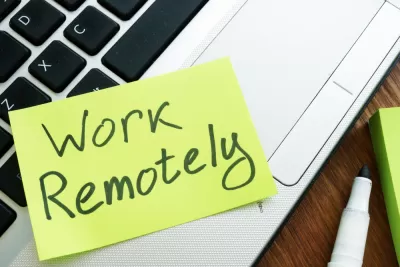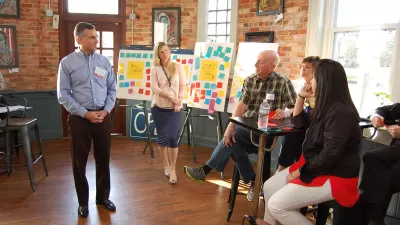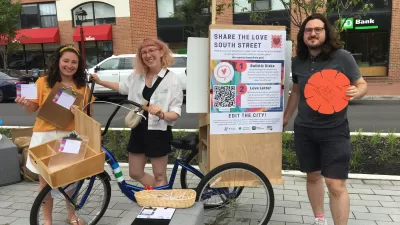Online public hearings and other meetings have become commonplace. A case can be made to continue virtual meetings even in the post-COVID-19 era.

By now, just about everyone has participated in some form of online meeting using tools like Zoom, Microsoft Teams, and/or Google Hangout, whether it be for work, school, or social purposes. This practice will likely continue on in the foreseeable future.
In this opinion piece, Scott Beyer argues the case for making virtual public meetings permanent. Specifically, Beyer's key points include:
- Meeting virtually reduces costs, such as travel/commuting costs for individuals and overhead costs for building maintenance, electricity, security personnel, etc.
- Online meetings increase public access and participation by enabling individuals to participate from the comfort of their homes and not worry about issues like childcare.
- Meeting virtually, instead of physically, prevents "public meetings from devolving into emotional trainwrecks," according to Beyer. He goes on to explain how virtual meetings can reduce emotional factors.
Beyers recognizes that in-person meetings will return at some point and are necessary for those without access to the internet. He concludes by saying, "A happy medium would be to hold meetings that are in-person but offer the option to attend and comment virtually. Officials will be able to hear a greater diversity of opinion, and members of the public will get the chance to calmly state their views while physically separate from the public-chamber mobs. The result is likely to be better public policy."
FULL STORY: The Case for Making Virtual Public Meetings Permanent

Maui's Vacation Rental Debate Turns Ugly
Verbal attacks, misinformation campaigns and fistfights plague a high-stakes debate to convert thousands of vacation rentals into long-term housing.

Planetizen Federal Action Tracker
A weekly monitor of how Trump’s orders and actions are impacting planners and planning in America.

San Francisco Suspends Traffic Calming Amidst Record Deaths
Citing “a challenging fiscal landscape,” the city will cease the program on the heels of 42 traffic deaths, including 24 pedestrians.

Defunct Pittsburgh Power Plant to Become Residential Tower
A decommissioned steam heat plant will be redeveloped into almost 100 affordable housing units.

Trump Prompts Restructuring of Transportation Research Board in “Unprecedented Overreach”
The TRB has eliminated more than half of its committees including those focused on climate, equity, and cities.

Amtrak Rolls Out New Orleans to Alabama “Mardi Gras” Train
The new service will operate morning and evening departures between Mobile and New Orleans.
Urban Design for Planners 1: Software Tools
This six-course series explores essential urban design concepts using open source software and equips planners with the tools they need to participate fully in the urban design process.
Planning for Universal Design
Learn the tools for implementing Universal Design in planning regulations.
Heyer Gruel & Associates PA
JM Goldson LLC
Custer County Colorado
City of Camden Redevelopment Agency
City of Astoria
Transportation Research & Education Center (TREC) at Portland State University
Jefferson Parish Government
Camden Redevelopment Agency
City of Claremont





























